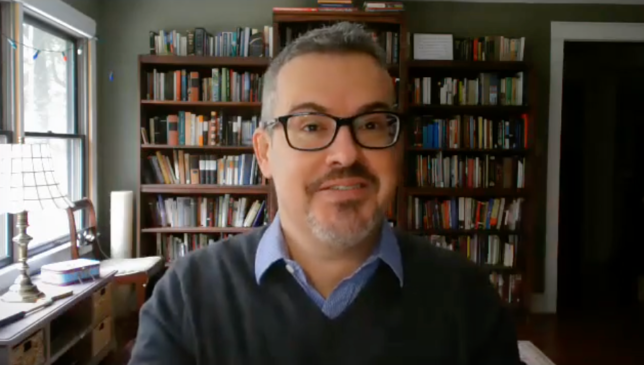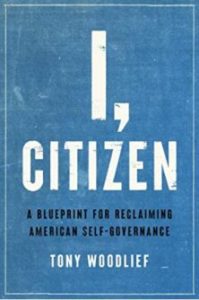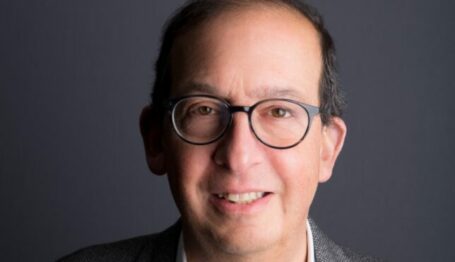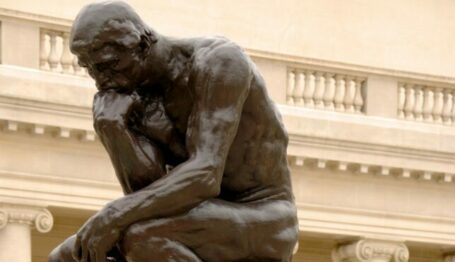Philanthropy
A Conversation with I, Citizen Author Tony Woodlief (Part 2 of 2)
The State Policy Network executive vice president talks to Michael E. Hartmann about love of neighbor, Tocqueville, localism, and politics, as well as more about philanthropy.
 Tony Woodlief, State Policy Network executive vice president.
Tony Woodlief, State Policy Network executive vice president.

“The gap between what ideological elites running DC believe about the common good, and what everyday Americans believe, explains why the political class has worked so hard to undermine American democracy,” according to Tony Woodlief’s I, Citizen: A Blueprint for Reclaiming American Self-Governance, forthcoming from Encounter Books. “The political elites don’t want We the People to rule, because they don’t trust our judgment and they despise our beliefs. I don’t think they’re very fond of us as people, either.”

Woodlief is executive vice president of the State Policy Network, before which he worked for the Koch family of companies and was a vice president of the Charles Koch Foundation. An award-winning columnist, he also authored the inspiring Somewhere More Holy: Stories from a Bewildered Father, Stumbling Husband, Reluctant Handyman, and Prodigal Son in 2010.
He was nice enough to join me for a conversation earlier this month from his home in North Carolina. During the first of two parts of our discussion, which is here, we talk about path dependence, his career in conservative policy-oriented nonprofitdom, and whether philanthropy has contributed to the decline of American self-governance.
The more than 15-and-a-half-minute video below is the second part, in which we speak about love of neighbor, Tocqueville, localism, and politics, along with some more about philanthropy and a little big-time Big Ten football.
“It might feel odd in a book about politics,” according to Woodlief, but in his I, Citizen, “I urge people to love your neighbor and I talk a little bit about what that means and doesn’t mean … Love is an action.” As a citizen, he continues, you should really “try to love your neighbor and know their name, and … turn off your TV, turn off the political news, get to know people in your community, and then try to solve some problems in your community together. And there I’m trying to channel Tocqueville, right?”
Returning to giving, and how to think about it in the context of localism, polarization, and politicization, Woodlief asks,
Is the intention of the philanthropy to give authority to people in communities or to subvert that authority and impose upon them a way of life? That is what I’m adamantly opposed to. That obviously has a political dimension because we’re going to give more autonomy back to communities. That means you’re restricting what the feds can do and a lot of my friends on the left and the right, depending on the issue, they don’t want to do that because they’ve got the power [and] they want to keep it, but that’s what we’re talking about. I’m less concerned with the content of local action than I am with empowering the people in the communities to decide for themselves.
This article originally appeared in the Giving Review on November 16, 2021.


